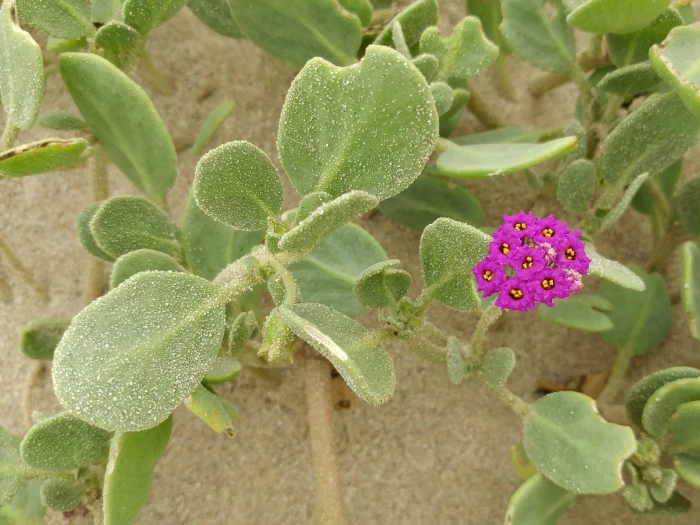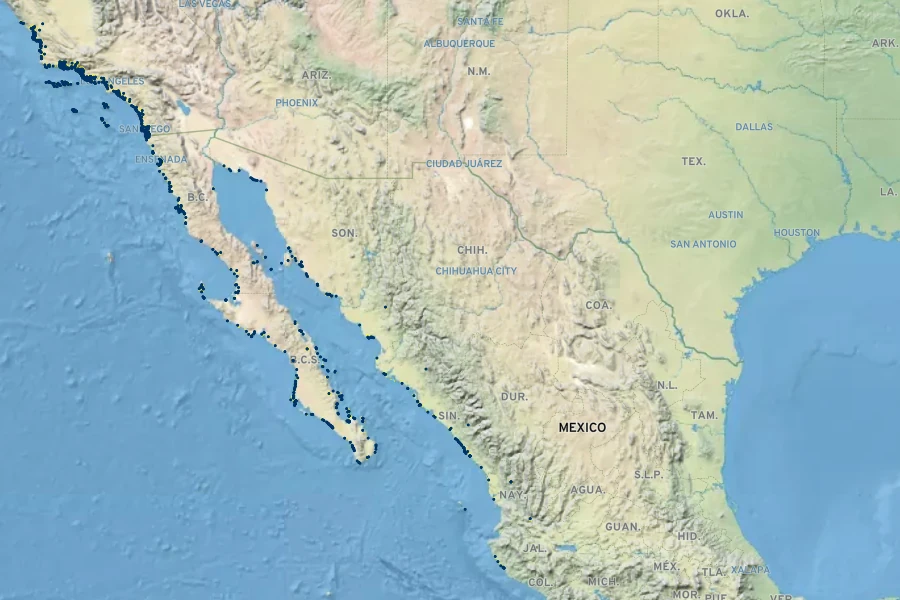Red Sand Verbena
/
(Abronia maritima)
Red Sand Verbena (Abronia maritima)
/

Casey H. Richart
CC BY 4.0
Image By:
Casey H. Richart
Recorded By:
Copyright:
CC BY 4.0
Copyright Notice:
Photo by: Casey H. Richart | License Type: CC BY 4.0 | License URL: http://creativecommons.org/licenses/by/4.0/ | Rights Holder: Casey H. Richart | Publisher: iNaturalist | Date Created: 2019-06-12T14:40:05-07:00 |

















































Summary
Abronia maritima, commonly known as Red Sand Verbena, is an evergreen perennial herb primarily native to coastal dunes and sandy beaches along the Pacific coast, including California and Northwest Mexico. It typically grows to a height of 0.5 feet (0.2 meters) and spreads 2-6 feet (0.6-1.8 meters) wide. The plant forms dense mats of succulent leaves that can be partially buried in loose sand, providing shelter for small beach-dwelling animals. Red Sand Verbena is notable for its vibrant pink to purple flowers that bloom throughout the year, especially from spring to early fall, adding color to coastal landscapes.
Red Sand Verbena is valued for its ability to stabilize sand dunes and its resilience to salty environments, making it suitable for coastal restoration projects and seaside gardens. It thrives in full sun and requires well-drained, sandy soil with moderate salinity, often benefiting from sea spray. While it can tolerate drought, it prefers regular watering to maintain its lush appearance. This species is not commonly found in cultivation due to its specific habitat requirements but can be a unique addition to a native plant garden or a xeriscape that mimics its natural coastal conditions. It is rare and faces threats from habitat disturbance due to human activity on beaches. Gardeners should note that while it spreads naturally, it is not considered invasive.CC BY-SA 4.0
Red Sand Verbena is valued for its ability to stabilize sand dunes and its resilience to salty environments, making it suitable for coastal restoration projects and seaside gardens. It thrives in full sun and requires well-drained, sandy soil with moderate salinity, often benefiting from sea spray. While it can tolerate drought, it prefers regular watering to maintain its lush appearance. This species is not commonly found in cultivation due to its specific habitat requirements but can be a unique addition to a native plant garden or a xeriscape that mimics its natural coastal conditions. It is rare and faces threats from habitat disturbance due to human activity on beaches. Gardeners should note that while it spreads naturally, it is not considered invasive.CC BY-SA 4.0
Plant Description
- Plant Type: Herb
- Height: 0.1-0.4 feet
- Width: 2-6 feet
- Growth Rate: Moderate
- Flower Color: Pink, Purple
- Flowering Season: Winter, Spring, Summer, Fall
- Leaf Retention: Evergreen
Growth Requirements
- Sun: Full Sun
- Drainage: Fast
Common Uses
Bee Garden, Butterfly Garden, Erosion Control, Salt Tolerant, Showy Flowers
Natural Habitat
Coastal dunes and sandy beaches along the Pacific coast
Other Names
Common Names: Red Sand-Verbena
Scientific Names: Abronia maritima
GBIF Accepted Name: Abronia maritima Nutt. ex S.Watson
